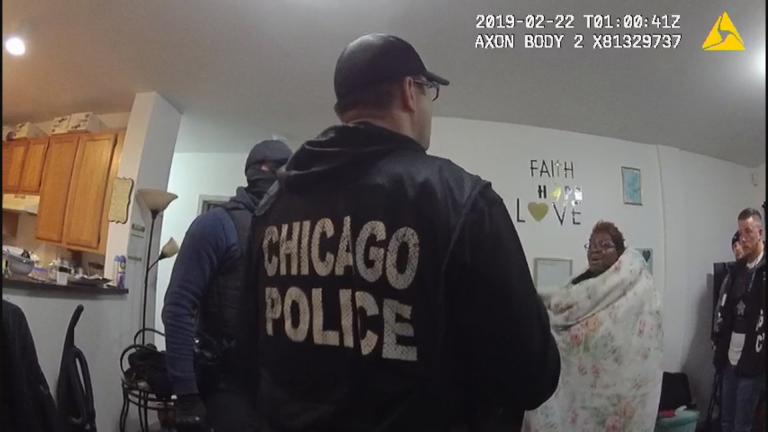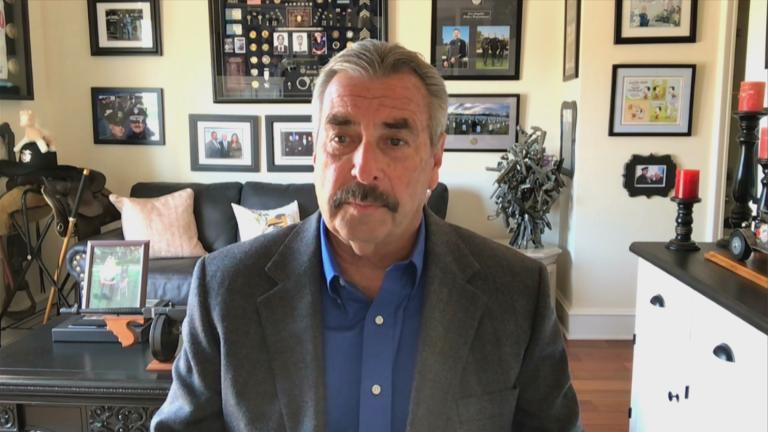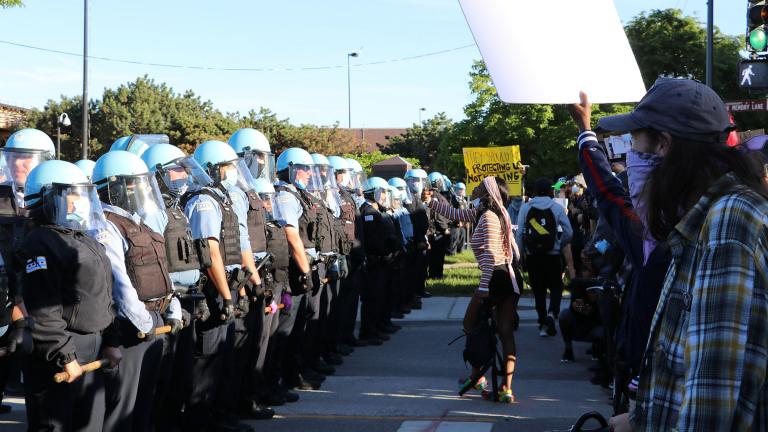Police Superintendent David Brown is not joining calls for federal charges for former Chicago police officer Jason Van Dyke and is instead highlighting his success in implementing reform at the Chicago Police Department.
Van Dyke was released Thursday after serving a little over three years in prison for the murder of Black teenager Laquan McDonald. He only served approximately half of his 81 month sentence.
But the ramifications of Van Dyke’s actions for the Chicago Police Department continue.
McDonald’s shooting ultimately led to a Department of Justice investigation of Chicago policing which eventually resulted in mandated reforms under an ongoing consent decree.
Mayor Lori Lightfoot said in a statement Thursday that Van Dyke’s relatively lenient sentence “continues to feel like a miscarriage of justice” when compared to how “many Black and brown men get sentenced to so much more prison time for having committed far lesser crimes.”
The NAACP among others is urging U.S. Attorney General Merrick Garland to pursue federal charges against Van Dyke.
But when asked if he supported efforts to bring additional charges Brown said his focus is on the future and reforming the department.
“I think one of the best things I could do related to this issue is focus on what really came out of the Jason Van Dyke-Laquan McDonald tragedy,” said Brown in an exclusive interview with WTTW News. “This department needs to reform. The culture needs to change.”
While talking of the historically “broken trust” between the department and communities of color, Brown also highlighted progress in implementing the consent decree on his watch.
He noted that when he was hired in 2020, the department’s compliance with the consent decree prior to his appointment was only around 23%. The independent monitor’s first compliance report found only 11% compliance.
Brown said he is expecting the next report from the independent monitor to find the department “near 70% compliance” for the reporting period that ended Dec. 31.
“Not where we want to be — we want to be 100% — but we are nowhere near the 11% compliance [at the beginning of the consent decree process],” said Brown.
He said the key to reform involved changing “a lot of people in leadership seats” and rigorous training, followed by more training.
“Operational compliance with the consent decree is really about changing the hearts and minds of our officers through the muscle memory of training, training, training and improving our policies on a continual basis to where it really is part of the muscle memory of this organization.”








